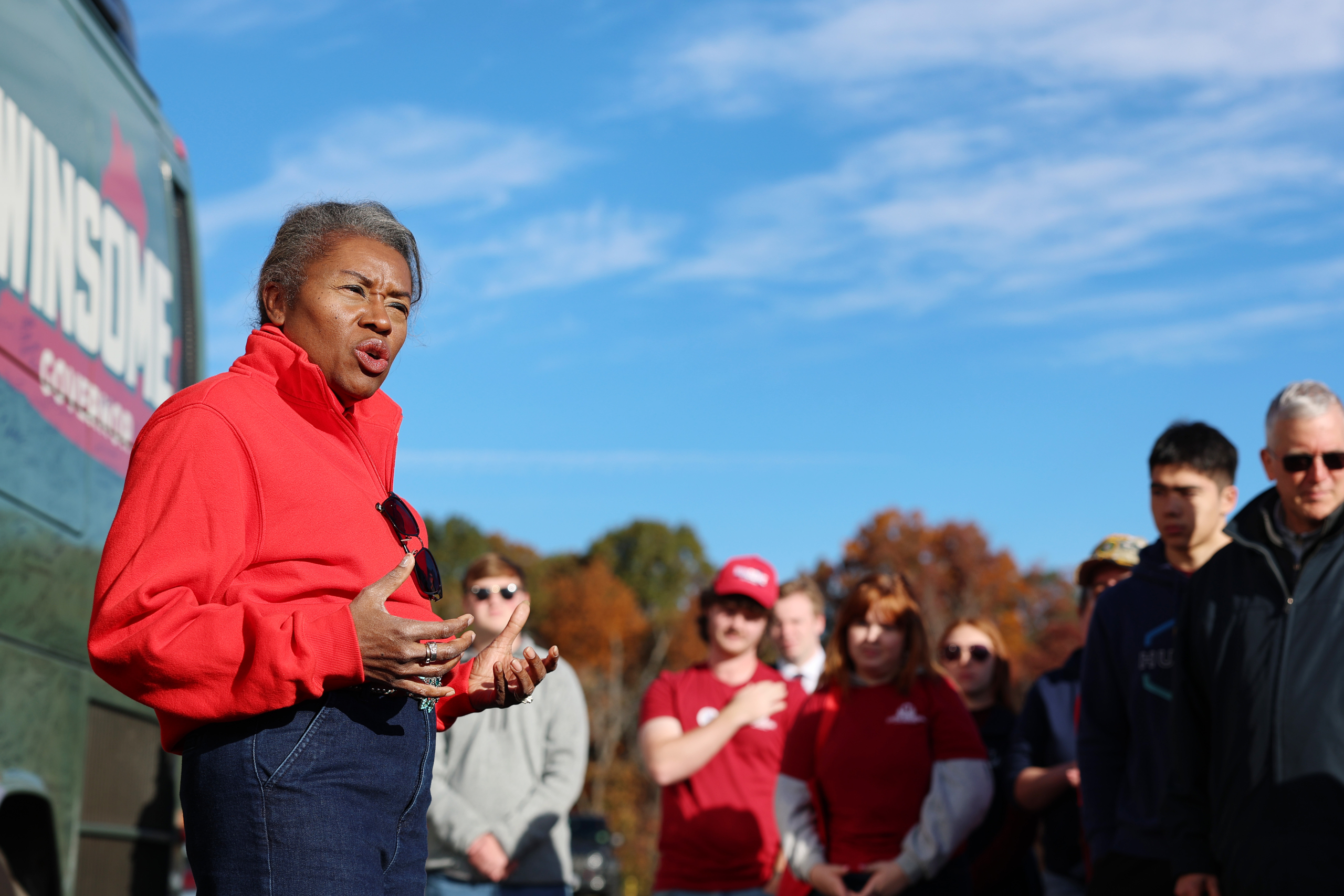Thought of the Day

Age and time do not wait for people.


Age and time do not wait for people.

Celebrate the fall season with this classic and fun dessert!
1. Prepare the apples
Wash and thoroughly dry the apples to remove any wax. Insert wooden sticks into the tops and set aside on a parchment-lined baking sheet.
2. Make the caramel
In a medium heavy-bottomed saucepan, combine sugar, brown sugar, butter, corn syrup, and heavy cream. Stir over medium heat until butter melts and mixture is smooth. Then, attach a candy thermometer to the side of the pan and cook without stirring until the caramel reaches 245°F (118°C). This usually takes about 10–12 minutes. Remove from heat.
3. Finish the caramel
Stir in vanilla extract and salt. Let the caramel cool slightly for about 3–5 minutes so it thickens enough to coat the apples.
4. Dip the apples
Tilt the saucepan slightly and dip each apple, turning to coat evenly. Let the excess drip off, then place each apple onto the prepared parchment sheet.
5. Add toppings and enjoy!
Quickly roll in nuts, sprinkles, or other toppings before the caramel sets. Let the apples set completely at room temperature for about 30 minutes, then enjoy this fall treat!


Patience is a bitter plant, but its fruit is sweet.

By ADRIANA GOMEZ LICON Associated Press
The U.S. Department of Agriculture has posted a notice on its website saying federal food aid will not go out Nov. 1, raising the stakes for families nationwide as the government shutdown drags on.
The new notice comes after the Trump administration said it would not tap roughly $5 billion in contingency funds to keep benefits through the Supplemental Nutrition Assistance Program, commonly referred to as SNAP, flowing into November. That program helps about 1 in 8 Americans buy groceries.
“Bottom line, the well has run dry,” the USDA notice says. “At this time, there will be no benefits issued November 01. We are approaching an inflection point for Senate Democrats.”
The shutdown, which began Oct. 1, is now the second-longest on record. While the Republican administration took steps leading up to the shutdown to ensure SNAP benefits were paid this month, the cutoff would expand the impact of the impasse to a wider swath of Americans — and some of those most in need — unless a political resolution is found in just a few days.
The administration blames Democrats, who say they will not agree to reopen the government until Republicans negotiate with them on extending expiring subsidies under the Affordable Care Act. Republicans say Democrats must first agree to reopen the government before negotiation.
Democratic lawmakers have written to Agriculture Secretary Brooke Rollins requesting to use contingency funds to cover the bulk of next month’s benefits.
But a USDA memo that surfaced Friday says “contingency funds are not legally available to cover regular benefits.” The document says the money is reserved for such things such as helping people in disaster areas.
It cited a storm named Melissa, which has strengthened into a major hurricane, as an example of why it’s important to have the money available to mobilize quickly in the event of a disaster.
The prospect of families not receiving food aid has deeply concerned states run by both parties.
Some states have pledged to keep SNAP benefits flowing even if the federal program halts payments, but there are questions about whether U.S. government directives may allow that to happen. The USDA memo also says states would not be reimbursed for temporarily picking up the cost.
Other states are telling SNAP recipients to be ready for the benefits to stop. Arkansas and Oklahoma, for example, are advising recipients to identify food pantries and other groups that help with food.
Sen. Chris Murphy, D-Conn., accused Republicans and Trump of not agreeing to negotiate.
“The reality is, if they sat down to try to negotiate, we could probably come up with something pretty quickly,” Murphy said Sunday on CNN’s “State of the Union.” “We could open up the government on Tuesday or Wednesday, and there wouldn’t be any crisis in the food stamp program.”

IVINS, Utah (AP) — Michael Brennan was just as dominant at Black Desert as he was on the PGA Tour Americas. He closed with a 5-under 66 to go from a sponsor exemption to a PGA Tour winner Sunday with his four-shot victory in the Bank of Utah Championship.
In his first PGA Tour start as a professional, Brennan became the first sponsor exemption to win since Nick Dunlap took The American Express in January 2024 as an amateur.
“Been my dream for a very long time to play on the PGA Tour and win on the PGA Tour,” Brennan said. “So, yeah, it feels amazing to do it. Just very thankful to even be in the field this week. I mean, ended up pretty good.”
The victory means Brennan, a 23-year-old who starred at Wake Forest, gets to skip the Korn Ferry Tour next year and go straight to the big leagues. He earned a two-year exemption on the PGA Tour, along with a spot in the PGA Championship and the $20 million RBC Heritage.
Brennan was No. 451 in the world when he left the South America portion of the PGA Tour Americas. But he was dominant in Canada (with one win in Minnesota), winning three times in a four-tournament stretch and posting eight top 10s in 10 starts.
Winning the Fortinet Cup season points race gave him a fully exempt Korn Ferry Tour card. Now he’s going straight to the PGA Tour to compete alongside Scottie Scheffler and the rest of golf’s best.
“It’s an amazing feeling,” Brennan said. “Winning golf tournaments is one of the better feelings in the world. It takes a lot to play professional golf, and I have such a great team behind me.”
It wasn’t the perfect finish to an otherwise ideal week. He put his second shot into a deep pit with lava rocks, smartly took a penalty shot for an unplayable lie and closed with a bogey. He finished at 22-under 262, four shots clear of Rico Hoey (67).
Brennan was a combination of power and poise at Black Desert Resort, the scenic Tom Weiskopf design framed by the red-rock cliffs and black lava.
Starting the final round with a three-shot lead, Brennan ran off three birdies in his opening five holes to stretch his lead to five shots and he was never seriously challenged.
“Just had one of those weeks where my driver went pretty straight and was able to send it and let it go and felt very confident over the driver all week,” Brennan said.
Hoey got within three shots after a two-shot swing at the 10th — a rare bogey by Brennan and Hoey making birdie. But then Brennan hammered a drive that rolled out 411 yards on the 12th hole down by the green, setting up a pitch-and-putt birdie. And he drove the par-4 14th green with a 3-wood to set up a two-putt birdie to keep everyone at bay.
“Michael played great from the start so for me I was just trying to keep up with him,” Hoey said. “He kept pushing me to hit great shots and make good putts. That’s all I could do.”
Winning in the FedEx Cup Fall portion of the schedule no longer comes with an invitation to the Masters, but now that is in range for Brennan. That big summer in Canada, along with his victory Sunday, moves him just inside the top 50 in the world.
He has access to three PGA Tour events remaining on the schedule. The top 50 in the world at the end of the year get to Augusta National.
Hoey’s chances all but ended when he missed a 5-foot birdie putt on the 13th to close within two shots, and a 10-foot birdie chance on the 14th that put him four shots behind. Even so, he went from No. 91 in the FedEx Cup to No. 61, securing his card for 2026.
Thorbjorn Olesen of Denmark (68) and defending champion Matt McCarty (70) were in the large group that tied for third at 16-under 268. That moved up Olesen 19 spots to No. 97 in his bid to keep full status next year.
Brennan said his caddie, Jeff Kirkpatrick, told him during his hot summer run that they would bypass the Korn Ferry Tour and make it straight to the PGA Tour.
“I can’t believe he’s right,” Brennan said with a laugh.

By STEVE REED AP Sports Writer
CHARLOTTE, N.C. (AP) — James Cook ran for a career-high 216 yards and two touchdowns, Josh Allen accounted for three scores and the Buffalo Bills returned from their bye with a resounding 40-9 win over the Carolina Panthers on Sunday.
Allen improved to 8-0 following the bye week and established an NFL record by becoming the first player to run and throw for a touchdown in 46 games, breaking the mark previously held by former Panthers QB Cam Newton.
Allen’s 77 career rushing touchdowns (including playoff games) tied Newton for the most all-time.
Allen finished 12 of 19 for 163 yards for the Bills (5-2), including a 54-yard toss to Khalil Shakir, and ran for two short touchdowns.
Cook had touchdown runs of 64 and 21 yards, becoming the third Bills running back to run for 200 yards and two touchdowns, joining Cookie Gilchrist and O.J. Simpson. Cook, who didn’t play in the fourth quarter, did it against a defense that had allowed just 131 yards per game on the ground over the past three weeks.
Buffalo’s defense sacked Andy Dalton seven times and forced the veteran quarterback into three turnovers to open a 40-3 lead in the third quarter. Dalton, who got the start for the injured Bryce Young, finished 16 of 24 for 175 yards with two fumbles and one interception as the Panthers’ three-game winning streak came to a screeching halt.
Buffalo built a 19-3 halftime lead behind a career-high 153 yards rushing from Cook — the most in the first half by a running back since his brother Dalvin Cook ran for 153 in 2021 — and three huge mistakes by Dalton.
Dalton’s first miscue came with the Panthers deep in Buffalo territory when he to scramble and was stripped from behind by Greg Rousseau, resulting in Christian Benford’s recovery.
The Bills turned that into Matt Prater’s field goal.
A short while later Dalton threw a ill-advised screen pass directly into the arms of Bills defensive end A.J. Espenesa, who returned it to Carolina 1, setting up a QB sneak for a score by Allen.
With the Panthers (4-4) threatening to score a touchdown in the waning seconds of the first half, Dalton took a sack on third down. Without any timeouts, the Panthers rushed their field goal unit on to the field but kicker Ryan Fitzgerald wasn’t able to convert a rushed kick from 32 yards and the Panthers went into the locker room down by 16.
The Bills extended the lead to 26-3 when Khalil Shakir turned a short pass from Allen into a 54-yard TD. Khalil finished with six catches for 88 yards.
Dalton had another fumble that led to Allen’s second touchdown run of the game and fell to 1-6 as a starter for the Panthers over the past three seasons.
Bills: Ed Oliver left the game in the first half with a biceps injury, leaving the Bills without both starting defensive tackles. DT DaQuan Jones was ruled out before the game
Panthers: The Panthers lost three starting offensive linemen during the game — RT Taylor Moton (knee), G Brady Christensen (ankle) and C Cade Mays (ankle). It’s a unit that has struggled with injuries all season and is even thinner now. LB Trevin Wallace left with a concussion in the second half and DE Derrick Brown left the game in the fourth quarter with a knee issue.
Bills: Host Kansas City on Sunday.
Panthers: At Green Bay on Sunday.

By MIKE RALEY WPTF Weekend Gardener
One of the most economical and practical things you can do for the plants in your landscape and vegetable garden is to start a compost pile. We’ve discussed it fairly often on the “WPTF Weekend Gardener” over the last 40 years. The first step is to find a relatively shady well-drained location in your back yard. You don’t have to buy a container, just build your own or find a proper spot on the ground. A wire cylinder 3 to 4 feet in diameter will work or build a three-sided box that’s 4 to 5-feet high and wide. However, if you prefer, ready-made bins are easy to find.
It is amazing how much your soil will thank you after you have incorporated good quality organic matter. It aerates the soil, provides nutrients, helps roots grow down farther into clay, preserve moisture and when placed on top of the soil, controls weeds and reduces erosion.
There are actually a couple of composting methods that our old friend and NC State horticulturist Larry Bass recommended-the “hot” and “cold” ways. The cold style is what most home gardeners use because it requires less attention. You add to it gradually as you have the right materials to add to it. This normally takes 3 to 12 months for decomposition. The “hot” method is much more deliberate and procures compost in a much shorter time. If you add your green and brown materials, and monitor and turn at least weekly, you will likely have a quicker batch than just adding compost materials and turning occasionally. Reaching the correct ratio of those carbon and nitrogen (green and brown) materials will hasten the process. It also evolves stockpiling materials and being more fastidious about your compost pile care.
To get your compost pile started, add a 6-inch layer of “brown” organic matter to the bottom of the container. Then add a 2 to 3 inch layer of “green” organic matter. The following items are possible additions: hay, straw, pine needles, leaves, kitchen scraps (egg shells, old bread, vegetable and fruit scraps), cow, chicken, or turkey manure, old vegetables, flowers, or trimmings from trees and shrubs, sawdust, wood chips, and weeds.
Not all organic matter is good for the compost pile. Avoid adding kitchen scraps like meats, oils, fish, dairy products, and bones. They attract unwanted animals, such as rats and raccoons, to the pile. Weeds that have gone to seed or that spread by their roots, diseased or insect-infested vegetable or flower plants, or herbicide-treated grass clippings should be avoided.
A properly constructed compost pile will heat up to a fairly high temperature; and while “hot” compost piles kill off many diseases, weed seeds, and insects, it’s not a sure thing Some of these unpleasant guests may survive to invade your garden again. What you put in the compost pile is up to you — just remember that it needs to be organic material.
Now that you have your compost pile started with a layer of brown and green organic matter, repeat the layering process, watering each one as you go, until the pile is 4 to 5-feet tall filling the bin. Don’t forget to water but avoid making your pile soggy. The compost pile needs the water in order to heat up and “cook”. Remember a smaller pile won’t heat up.
There is also vermicomposting which relies on earthworms and microorganisms to accomplish the same task. My Uncle Eugene Edens owned a country store in Franklin County for decades and utilized this method. However, he was mainly growing earthworms and selling them to fishermen.
Do keep in mind that whatever method you use to make compost, it is going to turn out to be an insignificant amount when you take into account the volume of product you may need. I usually go for the easiest method to get a good quality compost in the amount needed. I buy it! But be adventurous and try it anyway. It could give you a sense of accomplishment, just like the art of gardening itself.

By OLIVIA DIAZ Associated Press/Report for America
SALEM, Va. (AP) — René Harvey and her wife arrived at a Roanoke Valley pride celebration in October carrying deep-seated worries about all that could go wrong.
The couple had been to the region’s annual pride festival before, but this year felt different. Harvey keeps up with the news, and the headlines describing political violence and LGBTQ+ hate linger with her. She’s been following Virginia’s statewide elections, including a race for governor that has heavily focused on trans youth.
“It’s scary, the way things are heading,” said Harvey, sitting at a booth for her LGBTQ-friendly parish. “We had a fear coming here today.”
It turns out Harvey had nothing to worry about. The festival was peaceful, even celebratory. Her interactions with residents in the area were friendly. Festival-goers from all over Virginia weren’t dwelling on gender identity and how it’s handled in the public schools.
But the topic matters to Winsome Earle-Sears, the Republican nominee for governor, who has said in her campaign that trans girls should be banned from bathrooms and sports teams. Abigail Spanberger, the Democratic nominee, has largely avoided the subject, saying only that statewide political leaders should not be meddling in local school matters.
Southwest Virginia Pride’s festival took place on the edge of Appalachia, in a city where President Donald Trump defeated Vice President Kamala Harris by more than 19 percentage points, and Republican nominee Hung Cao beat U.S. Sen. Tim Kaine by 13 points in his unsuccessful campaign. Spanberger, who has worked to make inroads with rural Virginians, and Earle-Sears have both made appearances west of the city.
The winner of the governor’s race will likely have a lot to say about regulations over trans youth in schools. In October, term-limited Republican Gov. Glenn Youngkin issued an executive order urging the Virginia Board of Health to draft guidance to “protect women’s and girls’ health and safety,” and he has also supported similar legislation in the Democratic-led legislature, which failed.
Harvey can appreciate nuance on the matter. She used to work in schools and said she believed kids deserve equal opportunities to succeed, particularly in sports. But she worries about the safety of her queer and trans neighbors, gathering in a vibrantly decorated sports complex to celebrate in a moment when their identities have been pushed to the political forefront.
Instead of carrying fear, she may join the next pride event, carrying a concealed handgun if it’s legally allowed at a future celebration.
“Just for peace of mind,” she said.
Trans youth in schools has been a key debate across Virginia heading into statewide elections, and the Roanoke Valley is no different. Earle-Sears has spent about $1 million and Spanberger around $409,000 on ads in the Roanoke media market addressing the matter, according to data from the nonpartisan media tracking firm AdImpact.
One of the top commercials from Earle-Sears’ campaign airing in the region attacks Spanberger for voting “to let boys share locker rooms with little girls” and “let children change genders without telling their parents,” according to AdImpact.
An ad put out by Spanberger counters that she wants to “get politics out of our schools and trust parents and local communities.”
The ads mirror the battle lines of their recent debate, in which Earle-Sears described trans students as a safety threat, and Spanberger declined to say whether she would rescind the measure signed by Youngkin requiring students to go only to the restrooms of their birth gender.
Jacey Clay, a trans woman on that board that organized the pride celebration, said the way trans people had been described in the governor’s race felt divorced from her reality. She made her transition two years ago, and said her people looked out for her and did not shame her.
“I have never once had a bad experience in the real world with people in Patrick County,” Clay said of her home in southwest Virginia. “I only see this fear of trans people in online spaces.”
Clay’s custom is to ignore the ads and Reddit chatrooms. In her Appalachia, she said, where she goes to the bathroom doesn’t come up in conversation.
Dolly Davis, a trans woman from Roanoke County, waved and hugged dozens who crossed her path at the pride event. “Our community is a close one,” she said. But she also acknowledged that “the talk from kowtowing politicians” is sometimes hard to ignore.
“We’re hiring them to work for us,” Davis said of trans voters. “But on the job, they tell these political lies going after us.”
About half of Virginia voters in the 2024 presidential election said support for transgender rights in government and society had “gone too far,” according to the AP VoteCast survey of voters. That measure was roughly in line with voters nationally. Only about one-quarter of Virginia voters said that support had “not gone far enough” and about the same share said it was about right.
Transgender rights were an issue that President Donald Trump hammered in attack ads last year ahead of his victory over Harris, most notably with a punchline: “Kamala is for they/them; President Trump is for you.”
It’s been a year since Trump’s anti-trans campaign. But the conversation has continued in Fairfax city, a deep blue community roughly 225 miles (362 kilometers) from Salem, Va., where Harris beat Trump by more than 34 points.
It’s there where parents, students, teachers and others gathered at a Moms for Liberty town hall earlier this month, and a panel of parents bemoaned local school board policies that considered the rights of trans kids.
One of the parents, Chris Funderburg of Prince William County, said, “There is a transgender student at the school, and my daughters don’t want to use the bathroom at the school.” Another parent described her high school son as “completely mortified” when he had to change clothes in front of a trans boy in the locker room.
Earle-Sears and Republican John Reid, the nominee for lieutenant governor, also spoke at the event of their pledges to weigh into the cultural matter if elected in November. At one point, Reid, who is openly gay, said to a cheering crowd. “You are not a bigot for saying that boys belong in one restroom and one locker room, and girls belong in another.”
Reid’s view contrasts with Sarah Goodman, a former Roanoke-area public high school English teacher who attended the pride festival. She said she left her position partly because she felt politicians were forcing too much anti-LBGTQ politics onto teachers.
Standing near rainbow-colored booths next to a live performer belting songs by Chappell Roan, Goodman said, “This is about bigoted adults.”
___
Associated Press writers Maya Sweedler and Linley Sanders in Washington contributed to this report.
___
The Associated Press’ women in the workforce and state government coverage receives financial support from Pivotal Ventures. The AP is solely responsible for all content. Find the AP’s standards for working with philanthropies, a list of supporters and funded coverage areas at AP.org.

DALLAS (AP) — Miro Heiskanen scored his second goal of the game during a four-on-three power play with 8:42 remaining and the Dallas Stars beat the Carolina Hurricanes 3-2 on Saturday night.
The Stars trailed 2-0 after the first period before scoring the final three goals of the game.
Carolina led 1-0 five minutes into the game on Jackson Blake’s unassisted goal off a faceoff in front of the Stars net. The Hurricanes increased their lead with 10.3 seconds remaining in the first period when Sebastian Aho scored with an assist from Nikola Ehlers after an errant pass from Heiskanen near mid-ice.
Heiskanen started Dallas’ rally with a goal 1:04 into the second period on a redirection with an assist from Esa Lindell.
Dallas tied it at 2-2 on Sam Steel’s power-play goal 4 1/2 minutes later on a redirect in front of the net on a shot from Thomas Harley.
Wyatt Johnston and Mikko Rantanen assisted on Heiskanen’s winning goal. It was Heiskanen’s sixth career multigoal, regular-season game.
Hurricanes goalie Brandon Bussi saved 31 of 34 shots. Stars goalie Jake Oettinger saved 26 of 28 shots.
The Hurricanes pulled Bussi with just over two minutes remaining but the Stars defense fended off a flurry of shot attempts to preserve the win. Dallas outshot Carolina 34-28 and had a 30-9 blocked shots advantage.
The Stars snapped a four-game losing streak after starting the season 3-0. The Hurricanes lost for the second time this season, their second loss in their past three games.
Hurricanes: Host the Vegas Golden Knights on Tuesday night.
Stars: At Nashville Predators on Sunday.


A journey of a thousand miles begins with a single step.